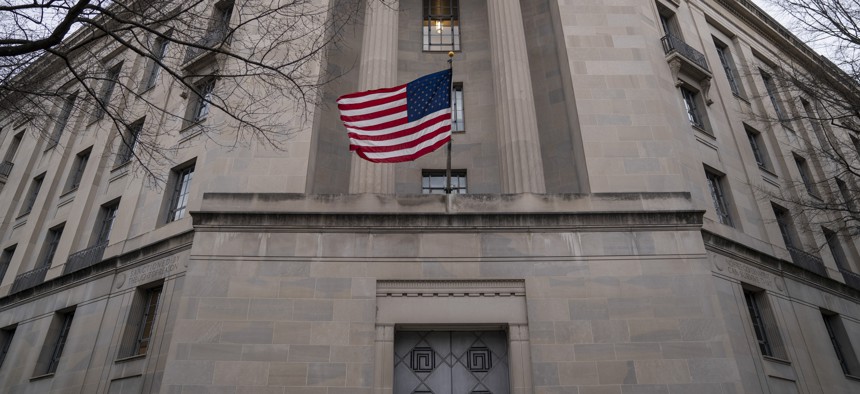DOJ sues to block spy tech deal

Drew Angerer/Getty Images
The U.S. government is opposing Booz Allen’s bid to acquire a rival ahead of a five-year signals intelligence procurement.
The Department of Justice filed a civil antitrust lawsuit on Wednesday to block Booz Allen Hamilton’s planned acquisition of signals intelligence vendor EverWatch because of competition concerns. The two firms were rivals in a planned National Security Agency services procurement called Optimal Decision.
“The two companies are the only competitors for this project, and if the merger is not quickly blocked, NSA and American taxpayers likely will be harmed in the form of higher prices, lower quality, and less innovation for this crucial service,” the Justice Department stated in its filing.
The government’s complaint is redacted because of the classified nature of the NSA project, but according to the filing, the NSA surveyed industry while planning the five-year contract for “operational modeling and simulation services” to the spy agency and found that Booz Allen and EverWatch were the only expected bidders.
According to the filing, EverWatch emerged as a competitor to Booz Allen’s long incumbency on NSA’s signals intelligence modeling and simulations services contract. The lawsuit cites Booz Allen’s internal documents rating its rival’s chances of winning the five-year service contract. Details on the ceiling value of the NSA contract and of Booz Allen’s estimation of EverWatch’s chances of winning were redacted in the DOJ complaint.
"We strongly disagree with the DOJ’s characterization of the proposed transaction," a Booz Allen spokesperson told FCW in an emailed statement. "The transaction would bring together two companies with complementary capabilities to enhance delivery of mission-critical services in support of our collective national security interests. We continue to believe the transaction would deliver significant benefits to our government clients in an industry that is highly competitive."
Booz Allen announced its plans to acquire EverWatch in March. Terms of the deal were not disclosed. Subsequent to that, EverWatch pulled back from its plans to lead a bid for the Optimal Decision contract and reassigned that role to a subcontractor – a move that the complaint states was done in an effort to evade antitrust scrutiny.
“Even if it makes this transition, EverWatch has no incentive to offer a competitive price for its own services as a subcontractor,” the DOJ's filing states. “The prime contractor/subcontractor shell game that EverWatch is playing will thus do nothing to restore the competition that has already been lost as a result of this transaction.”
In a press release accompanying the complaint, Assistant Attorney General Jonathan Kanter said that the planned deal “imperils competition in a market that is vital to our national security” adding that “both the acquisition agreement and the underlying transaction violate federal antitrust law.”






